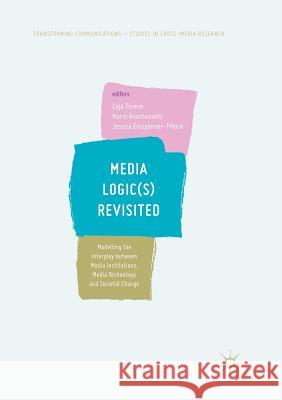Media Logic(s) Revisited: Modelling the Interplay Between Media Institutions, Media Technology and Societal Change » książka
topmenu
Media Logic(s) Revisited: Modelling the Interplay Between Media Institutions, Media Technology and Societal Change
ISBN-13: 9783030097479 / Angielski / Miękka / 2019 / 294 str.
Media Logic(s) Revisited: Modelling the Interplay Between Media Institutions, Media Technology and Societal Change
ISBN-13: 9783030097479 / Angielski / Miękka / 2019 / 294 str.
cena 281,10
(netto: 267,71 VAT: 5%)
Najniższa cena z 30 dni: 269,85
(netto: 267,71 VAT: 5%)
Najniższa cena z 30 dni: 269,85
Termin realizacji zamówienia:
ok. 22 dni roboczych.
ok. 22 dni roboczych.
Darmowa dostawa!
Kategorie:
Kategorie BISAC:
Wydawca:
Palgrave MacMillan
Seria wydawnicza:
Język:
Angielski
ISBN-13:
9783030097479
Rok wydania:
2019
Wydanie:
Softcover Repri
Ilość stron:
294
Waga:
0.38 kg
Wymiary:
21.01 x 14.81 x 1.7
Oprawa:
Miękka
Wolumenów:
01
Dodatkowe informacje:
Wydanie ilustrowane











